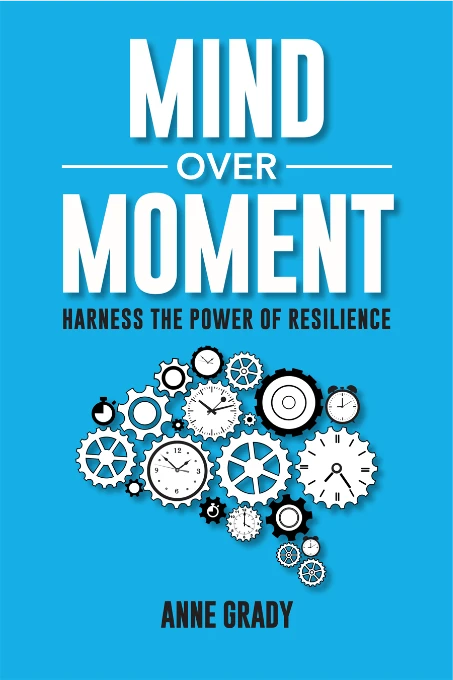People Pleasing: What it Is & How to Overcome it
People Pleasing: What it Is & How to Overcome it
At first glance, being a people pleaser doesn’t seem so bad — but when we constantly put the needs of others before our own, people pleasing becomes an insidious behavior that diminishes our mental well-being.
Today, let’s dive into people-pleasing behavior and explore how to set a healthy boundary to begin to overcome it.
What is a people pleaser?
A people pleaser is someone who sacrifices their own needs, desires, and beliefs in order to meet the wishes, requests, or perceived expectations of those around them.
From always saying “yes” even when they want to say “no” to altering their actions to avoid disapproval, people pleasers often go against themselves in order to appear more generous or well-liked in the eyes of others.
Examples of people-pleasing behavior:
– Taking on work outside of your main job duties.
– Helping a friend organize a get-together when you already have a full calendar.
– Canceling fun weekend plans to take your child to the 6th birthday party they were invited to just this month.
– Hiding your true thoughts and emotions because they’re different from someone else’s.
– Apologizing for things that aren’t your fault.
– Feeling guilty if and when you do prioritize your own needs.
Why is people-pleasing behavior harmful?
Doing things for others and saying yes to their requests can be vital for forming connections and building long-lasting personal and professional relationships — but when your desire to please others supersedes your own values, needs, and beliefs, these behaviors end up diminishing your relationships and your mental health.
Negative effects of people-pleasing behavior:
– Burnout
– Resentment
– Low self-esteem
– Increased feelings of stress and anxiety
– An inability to build healthy relationships with others
How do you tell if you’re a people pleaser?
Ask yourself the following questions:
- Do I prioritize others’ needs, wants, and happiness, often at the expense of my own well-being?
- Do I feel guilty when I focus on my own needs over others’?
- Do I go out of my way to avoid conflict or confrontation?
- Do I alter my opinions or actions to fit the mold of others’ expectations?
- Do I have difficulty saying “no” or setting and communicating my boundaries?
If you answered “yes” to any of the above, you may be a people pleaser — and in order to overcome people-pleasing behavior, it is important to set boundaries with yourself and those around you.
How do you set healthy boundaries and overcome people-pleasing behavior?
A healthy boundary is one that is understood, communicated, and respected by all parties. All too often, someone may understand what is unacceptable, but they fail to communicate this to others or offer solutions that work better for everyone.
If you are a people pleaser, here are 4 steps to set a boundary:
1. Start small. Think of one specific area of your life where you could benefit from a clear boundary, whether at work or at home.
2. Explain what is not acceptable and an alternative that is.
3. Communicate it clearly and succinctly. Keep it simple.
4. Share why it is important.
For example, let’s say your manager asks you to tackle a new project when you already have a full day of work. You could set and communicate a boundary by saying something like, “I’d love to help. I have quite a few projects on my plate right now. I’d like to make sure we are aligned on what’s most important so I can finish my workday by 5:00 PM.”
Once you decide what’s off-limits, stick to it. Providing context is fine, but don’t apologize for saying no, and don’t negotiate the decision with yourself or others.
Moving Forward
People pleasing is not generous or kind — it is a coping mechanism that often leads to frustration, exhaustion, and resentment. By setting and communicating healthy boundaries, we can begin to overcome people-pleasing tendencies and protect our mental well-being.
You only get one chance to live, love, and navigate this thing called life. Don’t be afraid to stand up for yourself, your needs, and what you believe in.
Subscribe to Anne's Resilience Reset Email!
Anne breaks down the daily habits and skills needed to grow and cultivate RESILIENCE.

Anne Grady is a Speaker, Author, and #TruthBomb Dropper.
Anne shares practical strategies that can be applied both personally and professionally to improve relationships, navigate change, and triumph over adversity. And she’ll make you laugh while she does it. Anne is a two time TEDx speaker, and her work has been featured in numerous media outlets, including Harvard Business Review, Entrepreneur, Forbes, Fast Company and Inc. magazines, CNN, ESPN, and FOX Business. She is the best selling author of 3 books. Her newest, Mind Over Moment: Harness the Power of Resilience, is available on Amazon now.




